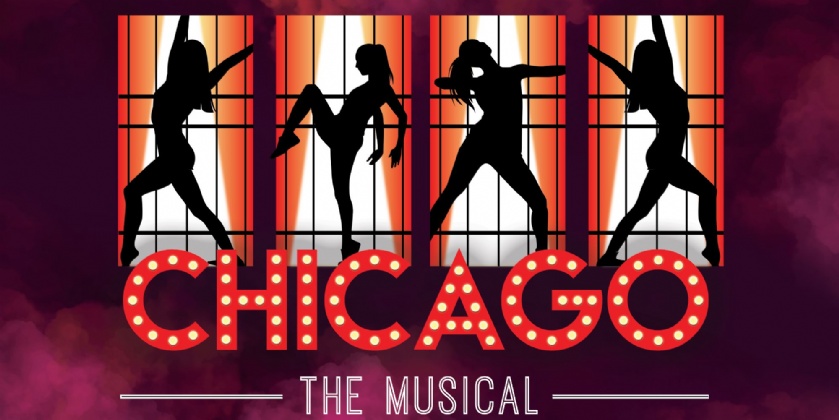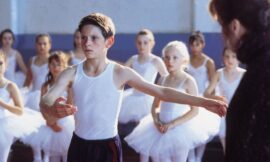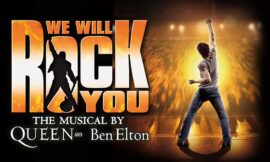Introduction
Chicago: The Musical is one of Broadway’s most enduring and beloved productions. With music by John Kander, lyrics by Fred Ebb, and a book by Ebb and Bob Fosse, Chicago first premiered on Broadway in 1975. Inspired by a 1926 play of the same name by journalist Maurine Dallas Watkins, the musical is a satirical take on the corruption of the criminal justice system and the cult of celebrity in 1920s America.
The show, featuring iconic songs like “All That Jazz,” “Cell Block Tango,” and “Razzle Dazzle,” has captivated audiences worldwide with its blend of humor, dark themes, and sizzling choreography. Over the decades, Chicago has been revived multiple times, with the 1996 Broadway revival becoming the longest-running American musical in Broadway history. The 2002 film adaptation further solidified its status as a cultural phenomenon.
Historical Background and Inspiration
The musical is based on true events from the 1920s. Journalist Maurine Dallas Watkins covered high-profile murder cases involving women who had killed their lovers or husbands and were acquitted after media-driven trials. She later turned these stories into a satirical play titled Chicago.
Bob Fosse, a legendary choreographer and director, envisioned turning the play into a musical. His signature jazz-infused choreography, known for its stylized movements, sensuality, and precision, became an integral part of Chicago’s identity. Fosse’s collaboration with Kander and Ebb resulted in a show that not only entertained but also provided sharp social commentary on crime, corruption, and media sensationalism.
Synopsis
Set in the roaring 1920s, Chicago follows the story of Roxie Hart, a chorus girl who murders her lover and lands in jail. There, she meets Velma Kelly, a vaudeville performer accused of killing her husband and sister. Both women hire the slick and manipulative lawyer Billy Flynn, who turns their trials into media spectacles, spinning their crimes into stories of glamour and victimhood.
As the public’s attention shifts rapidly from one sensational case to another, Roxie and Velma compete for the spotlight, striving to turn their infamy into fame. The musical ends on a note of cynical triumph, with both women achieving their dreams of showbiz stardom, despite their criminal pasts.
Themes and Messages
- The Corruption of Justice
Chicago portrays the legal system as a stage where truth is secondary to performance. Billy Flynn’s courtroom antics turn trials into theatrical productions, illustrating how wealth, charm, and public image can manipulate justice. - The Power of the Media
The musical highlights how media sensationalism shapes public opinion. Roxie and Velma transform from criminals to celebrities through carefully crafted narratives, emphasizing society’s obsession with scandal over morality. - Fame and Celebrity Culture
Chicago satirizes the notion that in show business, any publicity is good publicity. Roxie and Velma understand that fame, even for the wrong reasons, can be their ticket to success. This message remains relevant in today’s world of reality TV and social media influencers. - Women’s Empowerment and Rivalry
Roxie and Velma’s relationship is complex—they are both rivals and allies. While they compete for the limelight, they ultimately recognize that their greatest success comes when they work together. The show’s strong female leads and their determination make Chicago a celebration of ambition and resilience.
Musical Numbers and Choreography
Kander and Ebb’s music, combined with Fosse’s choreography, creates a uniquely compelling theatrical experience. Some standout numbers include:
- “All That Jazz” – Velma’s opening number sets the tone for the musical, exuding energy and style.
- “Cell Block Tango” – A powerful ensemble piece where female inmates share their stories of crime and betrayal.
- “Roxie” – A playful, self-indulgent solo where Roxie imagines her rise to stardom.
- “Razzle Dazzle” – Billy Flynn’s grand courtroom performance, showcasing his ability to manipulate the truth.
- “Nowadays” – A bittersweet finale that underscores the fleeting nature of fame.
Fosse’s choreography, with its distinct isolations, slinky movements, and sharp angles, remains one of Chicago’s defining elements. The show’s minimalist set and black-and-white costuming highlight the dance and storytelling rather than elaborate scenery.
Critical Reception and Awards
Since its premiere, Chicago has received widespread acclaim. The original Broadway production, though well-received, was overshadowed by A Chorus Line. However, the 1996 Broadway revival, directed by Walter Bobbie and choreographed by Ann Reinking in the style of Bob Fosse, was a massive success. It won six Tony Awards, including Best Revival of a Musical, and has become the longest-running American musical in Broadway history.
The 2002 film adaptation, directed by Rob Marshall and starring Renée Zellweger, Catherine Zeta-Jones, Richard Gere, and Queen Latifah, brought Chicago to an even wider audience. The film won six Academy Awards, including Best Picture, and introduced a new generation to the show’s brilliance.
Cultural Impact and Legacy
Chicago has influenced musical theater in several ways:
- Revitalizing the Jukebox Musical Format
The success of the 1996 revival demonstrated that classic musicals could be reimagined for modern audiences. This helped pave the way for other revivals and long-running Broadway hits. - Celebrating Bob Fosse’s Choreographic Style
Fosse’s signature movements have been studied and replicated in dance studios worldwide. His influence can be seen in contemporary productions and even in pop culture, including music videos and dance competitions. - Bridging Theater and Film
The Chicago movie proved that stage musicals could successfully translate to film while retaining their theatrical essence. Its success inspired other Broadway adaptations, such as Les Misérables (2012) and The Greatest Showman (2017). - A Timeless Story with Modern Relevance
Themes of corruption, sensationalism, and the hunger for fame remain as relevant today as they were in the 1920s. The show’s sharp critique of media-driven celebrity culture continues to resonate with audiences.
Conclusion
Chicago: The Musical is a dazzling, satirical, and thought-provoking masterpiece that has stood the test of time. With its unforgettable music, iconic choreography, and biting social commentary, the show continues to captivate audiences worldwide. Whether on stage or screen, Chicago remains a compelling exploration of crime, fame, and the pursuit of the American Dream—one that never goes out of style.
*I’m not sure of the exact date for Billy Elliot, but in September 2006, Jeena and I attended We Will Rock You, our first musical, marking the beginning of our theatre-going experiences.


